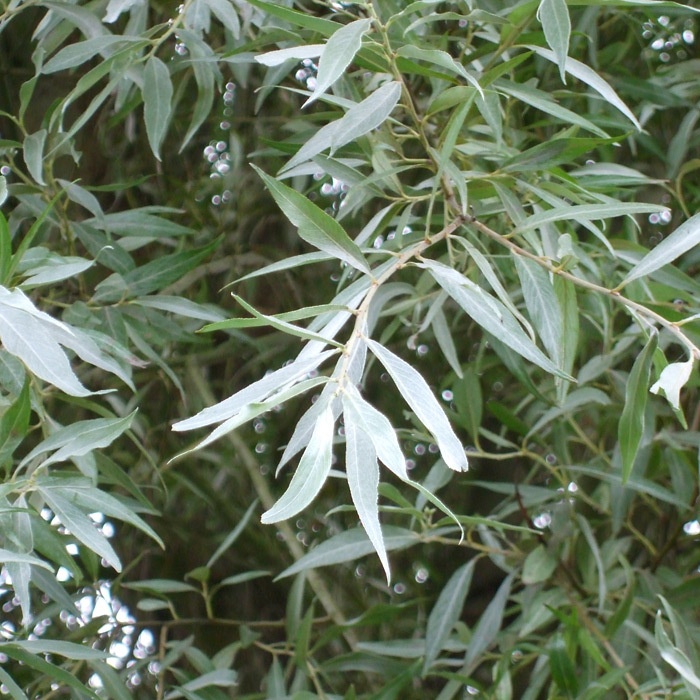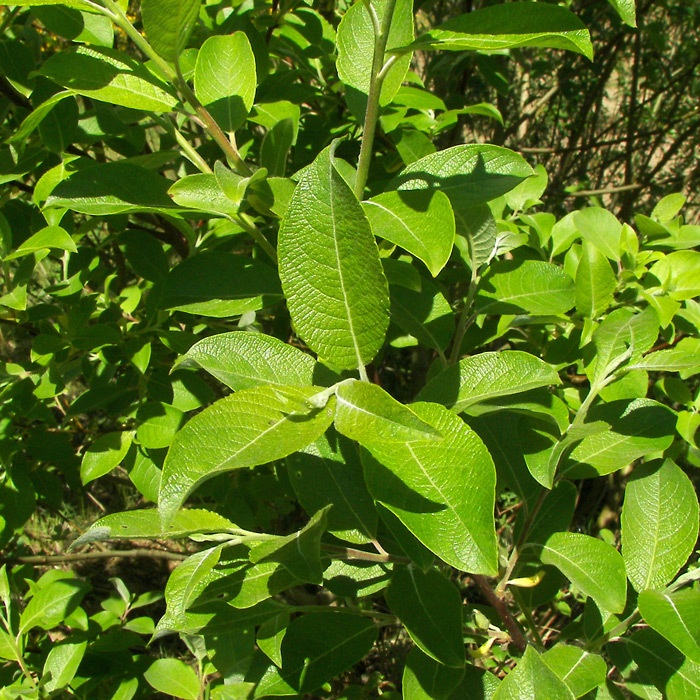
Salix (Willow/Osier)
We provide a range of Salix bare root plants, including Salix alba, Salix caprea, Salix cinerea, Salix fragilis & Salix viminalis.
An attractive tree, whose branches droop elegantly with age and whose narrow silvery leaves distinguish it from other willows. The White Willow (Salix alba) makes a good specimen tree near water, but it is also commonly coppiced and pollarded for its young, flexible shoots.
Also know as Sallow or Pussy Willow, the Goat Willow (Salix caprea) is a common plant all over Britain. Because its flowers are amongst the earliest in the year to appear it provides a valuable food source for foraging bees. Although it grows well in wet situations, it performs well in dry conditions too.
The Grey Willow (Salix cinerea) is a small tree to 10m, but more usually makes a large shrub, and along with the Goat Willow is also known as Pussy Willow. Sometimes confused with Goat Willow, but its leaves are narrower with greyish-white undersides.
The Crack Willow (Salix fragilis) is a large native tree, usually found near waterways and on riverbanks. It gets its name from the fact that its branches break off easily with a sharp crack; when this happens naturally, the broken piece often roots into the soil near the parent tree.
The Common Osier, or Willow (Salix viminalis) is a vigorous, fast-growing native shrub, often found in wet or damp situations in the countryside. The young stems are yellow in spring, and the yellow-green catkins attract a variety of insects. Environmentally, it is useful for its ability to absorb heavy metals, and is planted to clean up contaminated sites.
Browse our range above, or refine your search using the links to the left.


